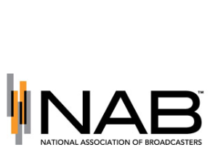
Ever since we ran THIS STORY on Friday of last week there’s been a very lively debate on our website amongst our readers and Radio Ink Chairman Eric Rhoads. One reader accused Eric of having “clouded judgement” when he writes about the iHeartMedia CEO. Here’s exactly what that reader said and Eric’s response…”Sorry Eric, but your personal friendship with Pittman is preventing you from being objective about him. Although certainty it is admirable that you are loyal to a friend. But from an objective standpoint, Pittman is a showman, not a businessman at all.”
Hey Bob,
Yu may be right. Perhaps my friendship has clouded my judgment, but I will say that in the past I have taken Bob and the company on when necessary, which have made for some very uncomfortable moments personally. That said, I’d like to address your claims.
But before I do, let me say that I am NOT in favor of voice tracking in most cases, and I am NOT in favor of people loosing their jobs, and I am NOT in favor with selling without sales people.
I’d also love for you and others to address specifics of what YOU would do to make the company profitable. It’s easy to arm-chair quarterback but I personally can’t think of what I would do, with the financial restrictions, that would move the needle. Increasing expenses on talent may move it long term with live and local but probably not enough to make it profitable (I prefer live and local).
Regarding programmatic, if you read AdAge and Adweek, every marketing company in the world is saying that if they cannot buy using a programmatic solution they will not buy. The IHeart response to this is to try and place themselves in a position to get $ they are not going to get otherwise. If it means jobs it’s probably on a national level, not so much locally (yet) but eventually this will creep it’s way into local buying as well. It’s a reality of the ad world.
Regarding lavish multimillion dollar parties and events, consider this. In the big world of national advertisers at the top tier level, IHeart is up against giant cable outfits, TV networks, and other big media companies who know that to get business they have to have perks and parties and to impress people with their connections. The IHeart music festival for instance has put IHeart on the national radar with advertisers in a big way. When you fly people in, let them meet the stars, let their kids meet the stars they are more likely to move business to you than to someone else. Though you and I may not like that, it’s reality. No CEO in the history of recent radio has been able to even get CEOs to meet with them. Pittman is meeting with CEOs of every major brand in America and leveraging these events to get attention, and it’s working. They are seeing business radio has never seen. Is it enough? Not yet? Will there be enough in time? Hard to know. But if he follows the track of every other past radio company they won’t make the $ they need.
Regarding voice tracking. Pittman may have furthered it, but it was Randy Michaels who really started it at Clear Channel, and others like Steve Hicks before him. It was one way they could see to cut expenses of talent. I don’t like it, I prefer live, but I think it would be interesting to compare $ and ratings in a scientific way to see if it matters. I do think there is a loss of local relevance and that cannot be measured. But, frankly, I’m not sure what I would do with looming expenses and no way to pay people if we went back to live and local, nor is there evidence that increases billing ((and if there is I would love to see it). I do think there is huge value in live and local and I’d rather every station do it, but I’m merely talking iHearts practicality. I do think broadcasters like Larry Wilson who are doing live, local, and active promotion in markets is very exciting to see, and my hope is they prove that it matters, which MIGHT get others to follow. But my guess is that their financial hands are tied.
Regarding expensive offices. I’m with you, I don’t see it. BUT, if entertaining clients than some show business matters. I used to bring advertisers to the stations and wanted the coolest high-tech look in the studios to make them feel we were cooler. Does it translate to $? I don’t know. Probably not. But NY is a different animal and maybe it does matter. Maybe we can ask Bob to address this one day.
I think the bottom line here is that there has been some big increases in spending and some of what they are doing has driven it. Remember Pittman went in when this debt was established. One thing Bob has always told me is that you cannot cut your way to success alone. Though they are making cuts, they are also investing in things they think will move the needle, including some behind the scenes tech that they believe will help them meet advertisers needs to be more digital.
I’ve often thought about what I would do if I were CEO of a troubled company like this. I’m honestly not sure. I do know that Pittman deeply cares and I’ve had those conversations where I know it’s painful when lives are disrupted when cuts have to occur. It’s easy for me and all of us to be critical, and I am much of the time. Yet, I’m not sure I could fix it. Imagine the most successful lavish CEO you can think of. What would she or he do differently? What would a showman like Branson do? Probably the same things.
Pittman is a showman, which is why he probably has a better chance. On the surface he is show, behind the scenes he is all business. I get messages from Bob at 2 in the morning when he is working. A few years ago when he came on board I said he might move the needle because he is a showman and can get into doors no other CEO in radio has ever been able to penetrate. What I think is refreshing about Pittman is that he is not doing what every other radio CEO does, which has not, for the most part worked for many of them.
I also know that if IHeart fails it’s going to damage all of radio, yet when they do high visibility things like a major TV network would do, it makes radio sexier, and that lifts the tide of all ships. Just a few years ago it was unheard of to see a radio company on network TV with a major festival. This is a game changer. It may not be resulting in the profits yet, and maybe it won’t, but it’s at least not doing things the way we have always done them.
I know it’s popular to be anti-big radio and to second guess the moves these people make. NONE of us like to see great people loose their jobs, but I don’t want to see ALL of us loose our jobs, which is one of the reasons I don’t always pile on. I’m not sure it serves any purpose to do so. Yes, it’s easy to look back to pre-1999 and think that things were better, and in some ways they were, but that was the fault of the government and we are living with the outcome. It was too easy to get money and thus the debt piled on, and the assumption that they could pay that debt was what everyone believed. (Note David Field did not buy in, which is one reason his company is so stable today).
I appreciate the dialogue, and clearly it’s not fun to watch what has happened to the industry we all love so much. The good news is that radio has not lost its audiences to the degree of TV and newspapers, so let’s all hope these CEOs will ultimately manage to salvage these companies from their debt. I suspect it all gets recasts so that they can eventually get ahead. Sadly some investors will loose their money, but maybe radio will get ahead again. Of course the economy will impact all of that, and much of the reason radio is seeing some off months is because, as an industry, we could do a better job of being where advertisers want us to be. The irony in all of this is that IHeart is one of few who really get this and are moving in that direction.







Bob is correct that you cannot shrink the enterprise to success. This is documented by Daryl Wyckoff professor at Harvard who is a world renowned expert on service businesses. But what iHeart and Cumulus does is keep adding businesses that take’s management attention, adds revenue to the corporation so the businesses seems to be getting better. You mention investments that will enhance iHeart’s product including technical upgrades; this doesn’t make sense to me. The underlining issue is the business model. So a business with surmountable debt, stock price .90, earnings per share -8.63 isn’t a sterling managed business. Frankly I’m surprised Bain hasn’t taken over managing the business. I consult a number of businesses including but not limited to NBCUniversal, Hyatt Hotels, Pepsi-Cola and others. So you ask yourself what can be done to better iHeart’s situation. Selling part of the outdoor business is certainly a start; it isn’t part of the core business. I’d look at every piece/product of the company is it giving ROI/profit. iHeart owns a bunch of stations in small markets. An example is Cape Cod, MA #192 with a population of 209,000. Wonder what a cost per spot is for the four iHeart stations? Point being how much cash flow and profit can these stations generates? And remember probably has four levels of management including corporate. This is only one example. Why?
As far as sales is concerned iHeart and all of radio haven’t implemented Best-in-Class techniques from other service businesses. An example is telemarketing for retail prospects. Create proposal templets for the top 20 industries. For small potential prospects fill in the blanks, email immediately (people like quick response); follow up for high potential prospects is a salesperson. For top of mind a monthly emailed newsletter.
As for voice tracking research shows people want local talent that relates to the market. But using it is a market/format decision. In any event the talent must be entertaining.
Paul Goldstein (below) makes the assumption – as have so many other fearful broadcasters – that, for listeners, it’s all about the music.
That’s a position that radio took many years ago. As a result, they let everything else – the meaty and meaningful stuff – slide away.
Listeners will get some combination of the warm & fuzzies, interests peaked, imaginations engaged, ires raised and funny bones tickled from personalities and from interesting and compelling commercials.
The Music has become no more than a demographic targeting tool.
But again, radio does not have the tools to address the spoken word-elements that are now so very necessary.
Traffic, weather, time, local events, local sports, etc….that’s the meat of L&L content but in a smart phone world they are much less important because listeners can get all of that instantly, on demand, on their mobile devices. To expect that a listener will wait through 20 commercials an hour to hear info they can easily get on their own, on demand, makes no sense. The hard truth is that in the same way listeners migrated from AM to FM, they’re migrating from FM to online. iHeartRadio has seen virtually no growth Y/Y proving broadcasters have had little success competing in that space as their listeners leave in mass for the Internet. After working for 25+ years in AM/FM radio, frightened I am not about the seismic shifts we’re seeing. I’m thrilled to see innovation and creativity in radio again but am sad that AM/FM companies have no meaningful plan to participate.
You might recall I think in the 90’s research determined listeners want more music and less chit-chat. Music stations then put on-air talent in the back seat. This resulted among other things talent couldn’t express a personality and you can hear that all over the country; they have nothing to say. By the way most PD’s weren’t alive when personality radio was key to the stations success.
If you look at most rock stations websites they hardly mention those on-air.
Radio keeps worrying about competition from streaming, Spotify, Pandora and others. For radio differentiae with strong highly identifiable on-air talent.
Yes, Bruce, there are a number of “personalities” at liberty who could step in and pull a shift tomorrow.
I am speaking to entirely something else. That is: The Next Level of Communicative Proficiencies.
There is so much information available for on-air and creative folks than ever before – and that includes the talent that was working last year or some years ago. The former on-air folks and the current crop are Not Good Enough to make the difference.
Simply re-hiring available talent without the necessary re-training will do little but increase expenses.
Ronald I disagree with your statement there is a vast amount of talent who could return to the industry and execute a live and local plan professionally….
Even as he does so with genuine sincerity, Eric may have popped the lid on radio’s “Pandora”s Box”.
When someone in Eric’s position claims to be unaware of what, specifically, to do next to solve radio’s obvious woes, it is no great stretch to speculate how he is not alone. Owners and management have hit the wall.
Is, therefore, “live & local” the answer? Yes, it is. But, there are enormous restraints – even greater than the expenses of loading up on talent. The issue is about the incompetencies of the available talent. Throwing them on the air would prove disastrous for most operators. (I do not know how Larry Wilson’s experiment is doing. But I am willing to speculate: It could probably be done a whole lot better.)
Unless the on-air talent and the writers of local spots are brought up to speed on their communicative skills, the effort of bringing on even more talent would only generate a sad, sorry and very expensive result.
The idea that “live and local” is the solution to broadcast radio’s woes is absurd. Loved Internet radio attributes such as song-skips, infinite variety and personalization are technically impossible on AM/FM. Broadcasters will either develop a new & powerful online radio service with a remarkable product or they won’t. Google, Apple, Pandora and Spotify are betting billions on the latter. Either way, the AM/FM to online mobile migration will accelerate in the next 2-3 years carving tens of millions of listeners and billions in ad dollars away from AM/FM. The culture of innovation and risk that propelled Internet radio to soar is absent from broadcast radio. There is no vision & no plan to push back against Internet radio’s march onto AM/FM’s terrain. Gordon Borrell is correct. https://3diz6f2vh2xx4v5zz43owe81.wpengine.netdna-cdn.com/wp-content/uploads/2014/10/borrell-oct2014-fm-decline-cropped-638w.jpg
Paul…live and local is the ONLY thing that separated AM/FM radio from Internet music streaming options. It is astounding how you and radii execs like Bob Pittman do not understand that. And if a radio station hopes to be successful with internet streaming competitors, yes on the Internet live and local is not important, but the station’s streaming product needs to be commercial free, and that is not economically viable.
Song-skips, personalization and infinite variety drew tens of millions from AM/FM to the Internet. L&L certainly WAS important in broadcast radio but its 2016. As I explained above, smartphones changed the importance of L&L. Google, Apple, Pandora and Spotify are absolutely thrilled to read broadcasters obsess on L&L. In 2013, when Nielsen banned the release of data showing the mass exodus from broadcast radio (https://goo.gl/KTZuYO), it comforted broadcasters. But it really thrilled Apple, Google, Spotify & Pandora because as they carved into broadcast radio’s revenue and listening audience, broadcasters could tell themselves everything was fine – they just needed to focus on L&L. LOL